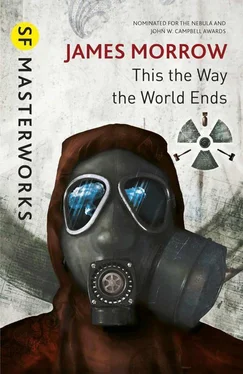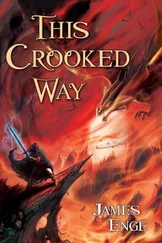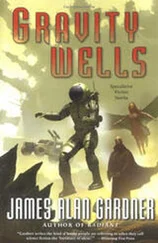The ground folded, hills bellied up. Trees broke from the bottom of the ravine like immense black hands. They bore not fruit but violence – thorns that were spikes, seed pods that were the heads of medieval maces. The moon took on a deathly pallor, becoming in George’s mind the corpse of his planet’s sun, sundeath syndrome leaving behind something to bury.
At the base of each tree, rings of mushrooms went round and round. For species living in the post-exchange environment, their abundance and variety were astonishing. George and Brat ran past mushrooms shaped like elf hats and others shaped like horns of plenty. There were trumpet mushrooms, umbrella mushrooms, candlestick mushrooms, phallus mushrooms, pig-snout mushrooms, toadstools, toadchairs, toadtables, and toadhammocks. Spiraling out of the forest, the island’s vast fungus population spread across dead meadows and desiccated fields like an army of maggots, right up to the gates of the city.
The city. It was as Brat had promised, whole, impounded by blast wave, unburned by thermal pulse. The marble walls glowed like phosphorous, the marble towers sweated in the torrid night. Fat vines slithered up and down the parapets. Gray, withered leaves, each the size and complexion of a shroud, lolled on the vines, embracing the ramparts as petals embrace the organs of a flower, so that the city seemed a kind of plant sprung from some mutant, war-irradiated spore. At one point the ramparts divided to receive a thick, tumid river. The main gate was open and unattended, the guard towers deserted. The fugitives entered freely.
A bent city. Twisted alleys, fractured sidewalks, crooked courts, each lamp post curved like the spinal column of a hunchback. Tall marble buildings leaned over the cobblestone thoroughfares, in certain places touching, fusing to create tunnels and high walk-ways. The fog, fat and milky, floated through the city like a cataract lifted from the eye of a giant. Dank vapors escaped from the well shafts and sewer gratings. As the river advanced it became the city’s prisoner, chained by bridges of stone, bound by levees of concrete, forced to feed a labyrinth of canals.
On the coiled and buckled streets, figures moved in a shadowy parade.
‘There – what did I tell you?’ said the MARCH Hare. ‘This extinction has been blown all out of proportion. We’re a tough breed, Paxton. Who knows? Maybe one of these survivors is that fertility expert you want.’
George paused beside a wrought iron gate and caught his breath. Had the war completely bypassed this island? Or had a faction of darkbloods emigrated from Antarctica and set up a colony off the tip of Africa? Closer observation suggested that the marchers were not unadmitted – certainly they bore little resemblance to Olaf Sverre’s cynical and irreverent Navy. They were like their city, palsied, broken, lost. Something pathological had visited these people – if not the war, then an equivalent catastrophe. They stepped to the beat of a convulsing drummer. They gasped like beached fish. Their clothing, a potpourri of styles and eras, was in worse shape than a scopas suit wardrobe after a thermonuclear exchange – rends, gashes, holes, with bare flesh beneath, yellow flesh, white, brown, cracked and gelatinous, here and there melting to bone.
‘Quite a show they put on, huh?’ said Brat. ‘Folk festival, I guess.’
Whenever he tried speaking with one of the marchers, the best he got was a blank look, more often a moan transmitting stenches and despair.
‘They don’t understand English,’ the general concluded.
The defendants moved down the sultry, glutted streets, jostling through the parade but in no way joining it. They came upon a plaza. Bricks glowed beneath the death’s-head moon. A defunct fountain lay in a web of fog. Across the way, a bright shop beamed through the night like a huge kerosene lantern.
The paunchy window was filled with hats. George gulped.
How had it managed to survive the Battle of Boston? How had it gotten here? Even the sign was intact: THE MAD TEA PARTY – REMARKABLE THINGS FOR HUMAN BODIES, followed by PROFESSOR THEOPHILUS CARTER – TAILOR, HATTER, FURRIER, INVENTOR, PROPRIETOR.
‘Looks like my best shot is to buy a costume and disappear into this Mardi Gras thing until the tide takes Sverre away,’ said Brat. ‘Are you really determined to get your balls back in order?’
‘Yes.’
‘I imagine I’ve got some pretty fantastic adventures ahead. I could use a man like you on my team, somebody who’s smart, strong… a little pig-headed.’
‘Sorry, Brat. A cure, then Antarctica, then a family – I’ve seen it all.’
The bells tinkled mournfully as the defendants entered. Gushing sweat, they wove through the vast collection of costumed mannequins. World War Three had not been kind to Carter’s inventory. The disintegrating tweeds of Edwardian gentlemen dusted the broken armor of Japanese knights. Eighteenth-century waistcoats rubbed tattered shoulders with nineteenth-century gowns.
‘Do you need lodgings?’ a voice called out in a British accent. ‘Several funerals are happening upstairs. Would you like a room with a viewing?’
The MAD Hatter had aged, not by the decades that had elapsed outside the darkblood realms, but enough to push him past the mortal side of sixty – eyes receding, red hair fading toward pink, brow stippled with liver spots. His top hat appeared to have contracted eczema.
‘I was sorry to hear of your species’s death,’ he said. ‘I meant to send a sympathy card. They don’t make belated sympathy cards, do they? “So sorry I missed your mother’s bout with cancer.”’
For the first time since the celebration banquet, George’s bullet wound began to throb. ‘I’m in a lot of trouble because of you, Professor.’
‘Trouble?’ said the Hatter.
‘I’m on trial for ending the world.’
‘Just remember, it could be worse. You could not be on trial for ending the world. You could be the corpus delicti instead. Signing that sales contract was the smartest thing you ever did.’
‘Hey, you know this bird?’ Brat asked of George.
Theophilus pulled off his hat. ‘Bird? The raven is a bird, also the vulture, but not I. You’re not a bird either, General Tarmac, though we’d all be better off if you were. Say, George, did you ever find out why a raven is like a writing desk?’
‘Right now I’m trying to find out about fertility. My secondary spermatocytes are failing to become spermatids.’
The Hatter’s sigh was long and musical. ‘There just isn’t much reproduction going on in the world any more, is there? What with the extinction and everything. These post-exchange environments have little to recommend them.’
‘Extinction?’ said Brat. ‘Nonsense, the streets are teeming with your customers. You must do a pretty good business around carnival time.’
Spontaneously – no one knew who was leading and who following – the three men went to the window. The parade crawled across the plaza like some huge organism, flagella and antennae lashing in all directions.
‘Welcome to the City of the Invalidated Past,’ said the Hatter, ‘or, if you prefer, the Necropolis of History, or, if you don’t prefer, the City of the Invalidated Past. It’s your kind of town, George. Yours too, General.’ He jabbed his index finger toward the window. ‘Look, there’s a guard from the court of Harun al-Rashid in eighth-century Baghdad. And a Roman civil engineer who built a water mill in 143 BC. A merchant responsible for bringing improved plow designs to Flanders in 1074. A bishop who participated in the Council of Trent. A worker on Henry Ford’s original assembly line… Think about it! These people actually lived!’ Theophilus held his top hat in front of his heart. ‘They got up each morning. They breathed, argued, screwed, moved their bowels. They saw the sun. They had opinions about cats. Listen, do you hear it? Do you hear their sorrow? Their sobs and wails? They’re sad because they’ve been invalidated. When you turn the human race into garbage, you also turn history into garbage. “Why did we bother to invent writing?” they ask. “Or spinning jennies? Why did we trouble ourselves with the cathedrals?”’
Читать дальше












